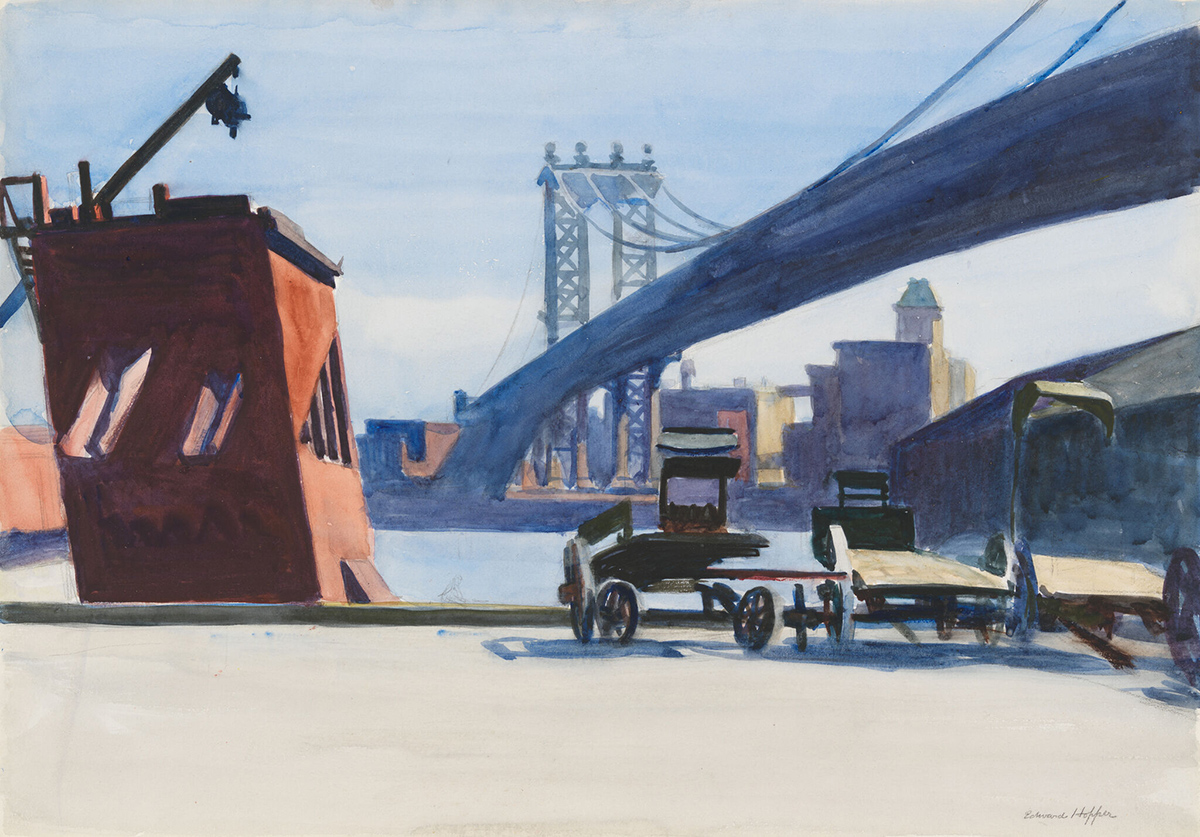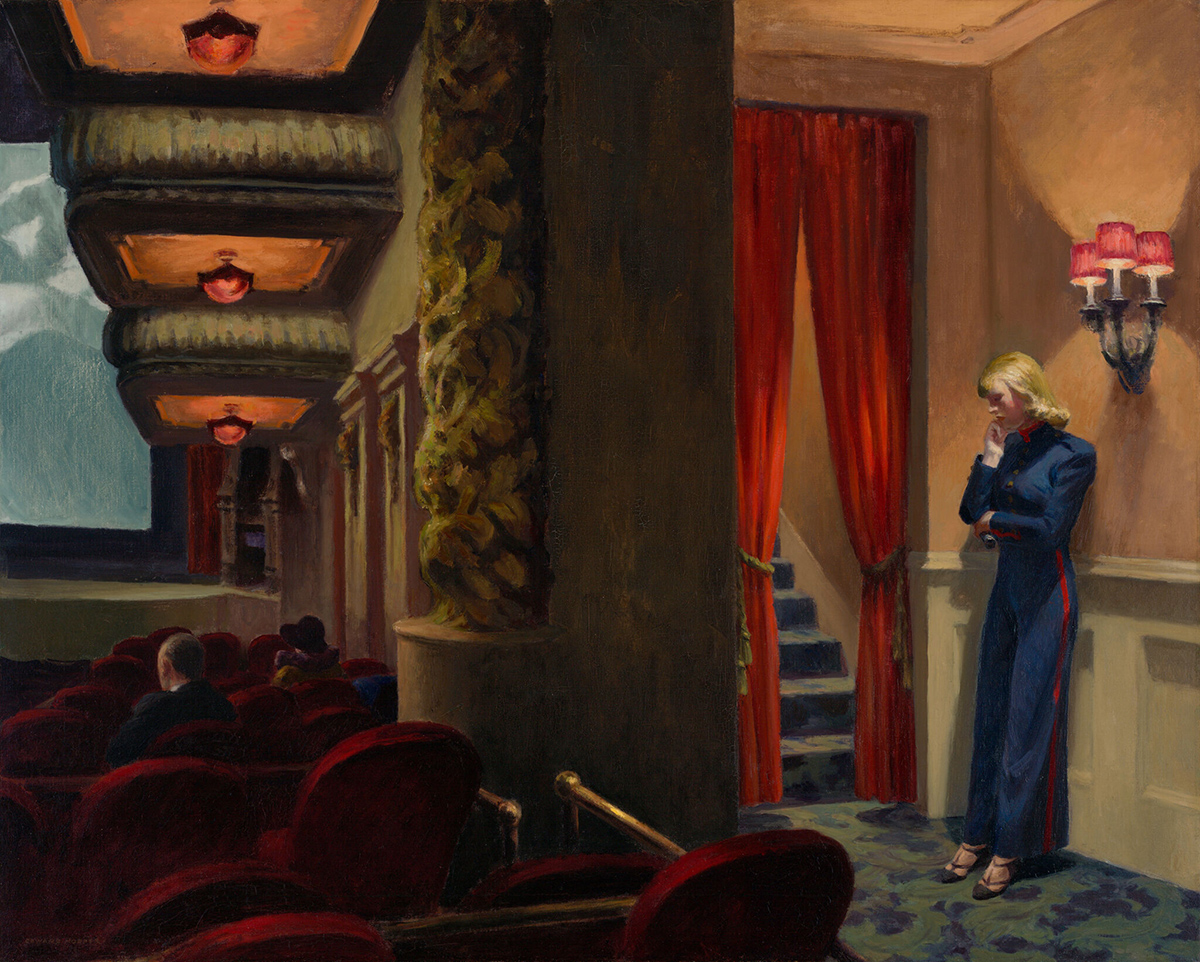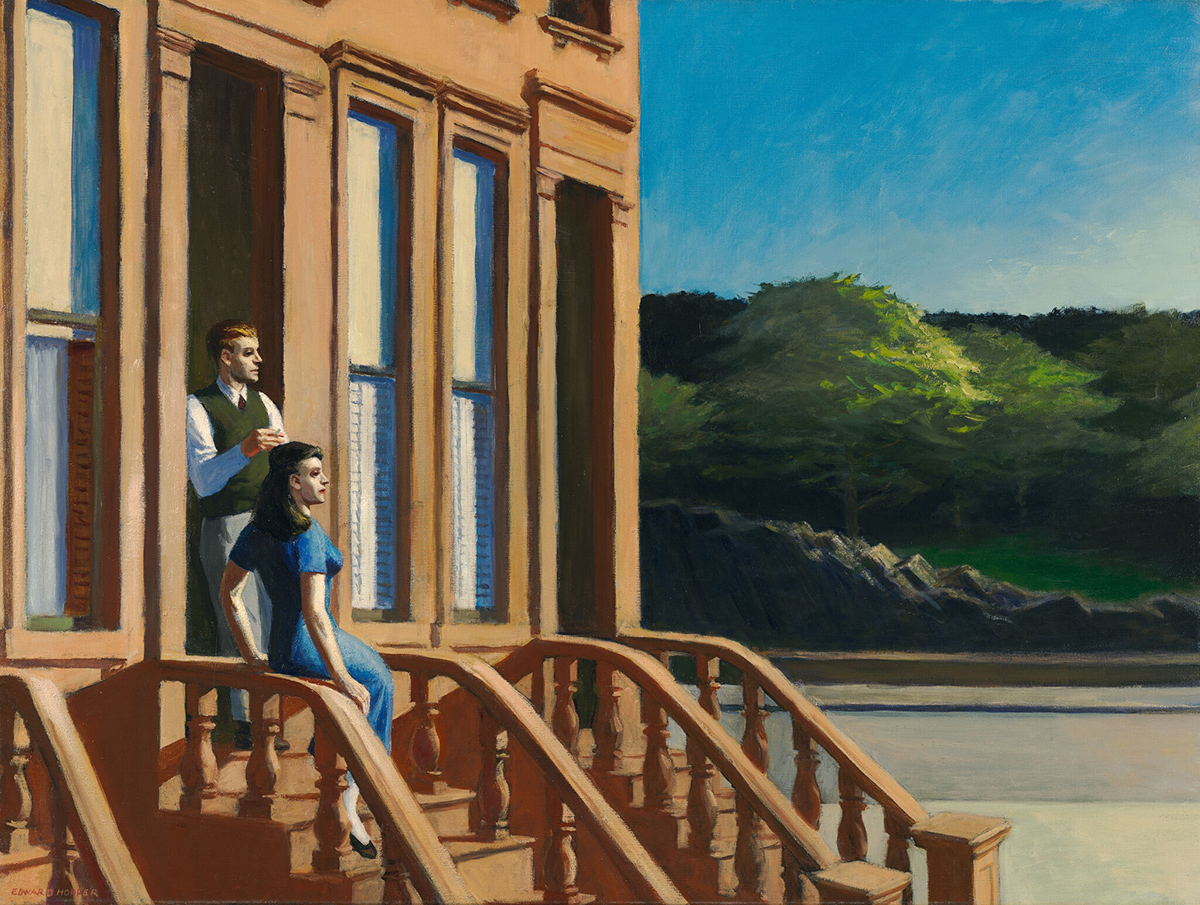
The Whitney Museum of American Art
Edward Hopper’s New York
October 19th, 2022 – March 5th, 2023
On October 19th, The Whitney Museum of American Art will become Edward Hopper’s New York. The exhibition, which is the first to focus on Edward Hopper’s lifelong enchantment with New York City, will house more than 200 paintings, drawings, and prints, as well as various archival materials that once belonged to the realist artist himself. In addition to providing new insights into one of America’s most iconic painters and printmakers, Edward Hopper’s New York celebrates the city as an ever-evolving cultural landmark through his beloved work.
“Edward Hopper experienced the same streets and witnessed the incessant cycles of demolition and construction that continue today as New York reinvents itself again and again. Yet, as few others have done so poignantly, Hopper captured a city that was both changing and changeless, a particular place in time and one shaped by his imagination. Seeing his work through this lens opens new pathways for exploring even Hopper’s most iconic works.” – Kim Conaty, Steven and Ann Ames Curator of Drawings and Prints

Hopper was born in 1882 in Nyack, New York along the Hudson River. As a child, he traveled with his family to Manhattan for quick day trips, later commuting to the city every day by ferry to attend the New York School of Illustration and the New York School of Art. Hopper eventually moved to Manhattan in 1908, where he spent most of the rest of his life until his death in 1967. He and his wife, artist Josephine (Jo) Verstille Nivison, lived and worked out of their top-floor apartment in Greenwich Village mere blocks from where the Whitney stands today. Jo, who became Josephine Hopper when the two were married in 1924, was critical to her husband’s artistic practice, serving as the muse for many of his works as well as his chief record-keeper.
Jo’s watercolors depicting the couple’s Washington Square home are also on display in Edward Hopper’s New York. The exhibition is organized into several “chapters,” with each chapter evoking a particular theme. “The City in Print” chronicles Hopper’s first successes with his etchings and illustrations that were heavy in urban symbols and motifs. Artworks that Hopper drew for magazines and advertisements – often of theaters, restaurants, and people – were heavily inspired by New York and previewed many of the signature techniques that he was later renowned for.

Other sections, such as “The Window,” “Washington Square,” and “Theater,” also document the city as the artist lived it. Paintings that have long become artistic staples, including “Automat” (1927), “New York Movie” (1939), and “Morning Sun” (1952) make their appearances in-between lesser-known compositions not only to provide a comprehensive snapshot of past New Yorks as they underwent dramatic change, but to pay homage to the uncommon depth in Hopper’s perception of people and places. Light (or the absence of it) is often used to shout a piece’s mood immediately, even when its subject is a building or a landscape absent of pedestrians altogether.

Toward the end of his life, Hopper called New York “the American city that I know best and like most,” and Edward Hopper’s New York leaves little room for doubt in his sentiment. Each of these works represents a piece of his acute understanding of a city that is constantly in flux. When placed together, they invite another reexamination of an artist whose realism never sacrificed the breathtaking, the emotional, or the dynamic – kind of like New York itself.
“Edward Hopper’s New York” is on view at The Whitney through March 5th, 2023.


